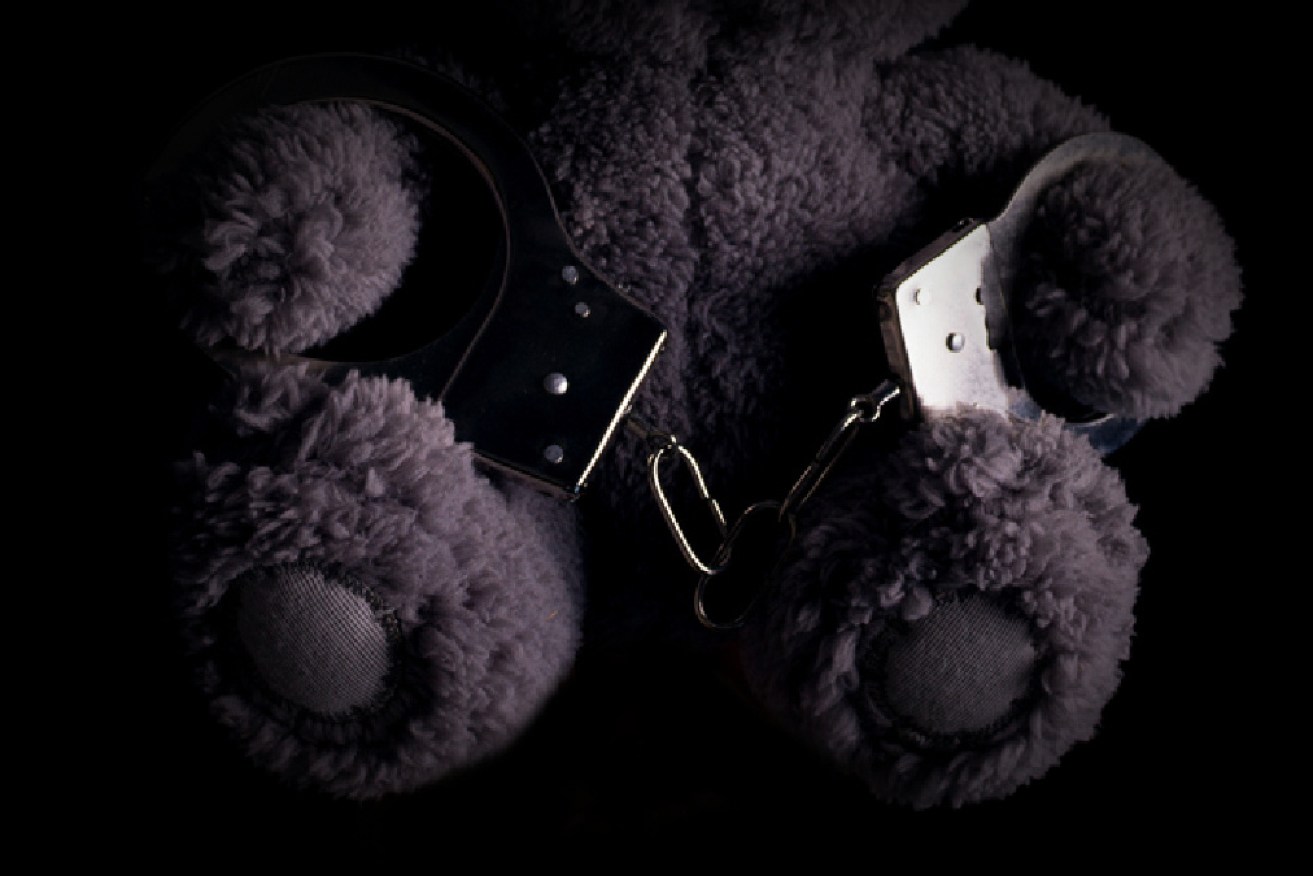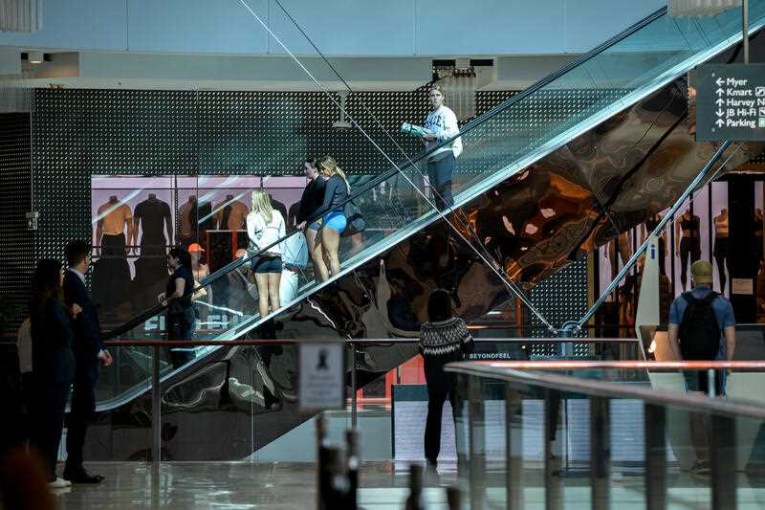Locked up for a food fight: Government under pressure to ‘raise the age’ of kids in prison


The Raise The Age campaign demands young children no longer be incarcerated. Photo: TND
Children as young as 10 are being locked up over food fights, a leading human rights lawyer said, as a national Raise The Age campaign demands young children no longer be incarcerated.
Doctors, lawyers and human rights experts are demanding changes to Australia’s “traumatising” youth justice system and the nation’s age of criminal responsibility, which they say only works to set up already vulnerable children for a life of crime.
“I’ve had children charged for criminal damage for having a food fight in a residential care facility, where they were spraying each other with tomato sauce,” Shahleena Musk, senior lawyer with the Human Rights Law Centre, told The New Daily.
“One of the kids was remanded in custody overnight.”
The age of criminal responsibility in every Australian state and territory 10 years old.
The Raise The Age campaign says about 600 children under 14 are incarcerated each year in Australia, with some 65 per cent being Aboriginal and Torres Strait Islander.
In a submission to CAG in February, the Human Rights Law Centre called this a “breach of human rights standards” which “puts Australia out of step with the rest of the world”.
This is our deadly Co-Chair, proud Yorta Yorta woman @NeritaWaight and also CEO of @thevalsmob as a 10 year old. Our young ones will always do better when connected to mob, culture, and country. We need to #RaiseTheAge so 10 year olds are not jailed here in Australia. https://t.co/0wddi53H4H
— NATSILS (@NATSILS_) July 24, 2020
The Raise The Age campaign wants the threshold raised to 14.
The federal Council of Attorneys-General (CAG) will meet to discuss the issue at its biannual meeting on Monday, as the coalition of medical and legal voices piles on pressure for the change to be made urgently.
National Aboriginal and Torres Strait Islander Legal Services, the Law Council of Australia, Amnesty International and the Australian Medical Association are among the supporters of the campaign.

Children as young as 10 can be put in detention. Photo: Getty
“Our children are being stopped by police, put in handcuffs and thrown into police and prison cells at up to 43 times the rate of non-Indigenous children in some jurisdictions,” said Cheryl Axleby, co-chair of Change the Record.
A number of high-profile Indigenous Australians including Miranda Tapsell, Adam Briggs and Nakkiah Lui have shared their support for the campaign – with many people sharing photos of themselves at age 10, on the #raisetheage hashtag.
You only have until Monday 27th of July to sign the petition below to raise the age of criminal responsibility to at least 14. Right now it’s 10. If the idea of a child in jail makes you as ill as it makes me, please sign the petition to #raisetheage https://t.co/7JzHk92jAk pic.twitter.com/st9CKAUThD
— Miranda Tapsell (@missmirandatap) July 23, 2020
Children don’t belong in prison. In Australia, children as young as 10 can be arrested, brought before a judge and sent to prison. It’s time to Raise the Age. Better preventative engagement with communities & family is paramount. https://t.co/WYmuuktaep #RaiseTheAge pic.twitter.com/Jw3b3gME1K
— Senator Briggs (Biblically Accurate) (@Briggs) July 23, 2020
https://twitter.com/nakkiahlui/status/1286499320791887875
Ms Musk, a Larrakia woman who has also worked as a crown prosecutor and lawyer with Aboriginal Legal Services, said the current age of 10 only served to further marginalise already vulnerable children.
“There’s inconsistency across the Commonwealth on whether a child gets diverted or cautioned, or subject to a sentencing order,” she said.

Legal and medical experts have called for alternative responses. Photo: Getty
Ms Musk said most children were locked up for crimes including theft, public order offences, or vandalism.
However, she has worked on numerous cases where offences were relatively minor, yet children were still diverted into the criminal justice system instead of being dealt with through other means, such as mediation or counselling.
Ms Musk said helping children avoid detention and the criminal system could help divert people away from reoffending as adults.
“Many of these are not offences needing criminal law,” she said.
“Imagine what it does to the relationship with police, when you put a child in detention.
“You’re forcing them through a system meant for adults, designed to break people down.”
https://twitter.com/musk_shah/status/1286151371318796289
Dr Mick Creati, paediatrician and senior fellow with the Royal Australasian College of Physicians, said medicine supported the raising of the age, with the human brain not sufficiently developed to control impulses and decision making at such a young age.
“It’s punishing kids for behaviour explained by brain immaturity. We’re criminalising childhood behaviour,” he told The New Daily.
Dr Creati said evidence showed that children in detention were more likely to experience cognitive issues like ADHD, depression, intellectual disabilities, learning difficulties and foetal alcohol spectrum disorder, and that incarcerating them – instead of offering alternative responses – often only makes the problem worse.
A 2018 study found 88 per cent of children aged 10 to 17 in Western Australia’s youth detention centre had “at least one domain of severe neurodevelopment impairment”, while 36 per cent had FASD.
“These are very vulnerable kids … they’re functioning lower than the normal kid,” Dr Creati said.

Dr Creati said children’s brains are still developing. Photo: Getty
“We also know that involvement with child protection is a proxy for trauma, and that kids in the child protection system are massively over-represented in prison.
“Being exposed to parental violence, neglect or trauma of being removed from families makes kids more irritable, impulsive, and it actually affects the way your brain cells develop.
We’re traumatising already traumatised kids.’’
Tiffany Overall is the advocacy and human rights officer with Victorian legal service Youthlaw, and convenor of the state’s Smart Justice for Young People coalition.
She said the current age of 10 was an “arbitrary” line, and therefore there was no reason it couldn’t be changed.
“By having a different response to young people offending, we’ll restrict the likelihood of them getting caught in the system later,” Ms Overall said.
“We do have an opportunity in the early years to change their trajectory.”
Ms Overall and Dr Creati said more should be done to offer social, medical and psychological assistance to young offenders.
“There are supports available, like keeping them in school, mental health assessments, linking with the NDIS,” Dr Creati said.
“We’d hope they listen to the medical advice, as they have with this pandemic response.”








